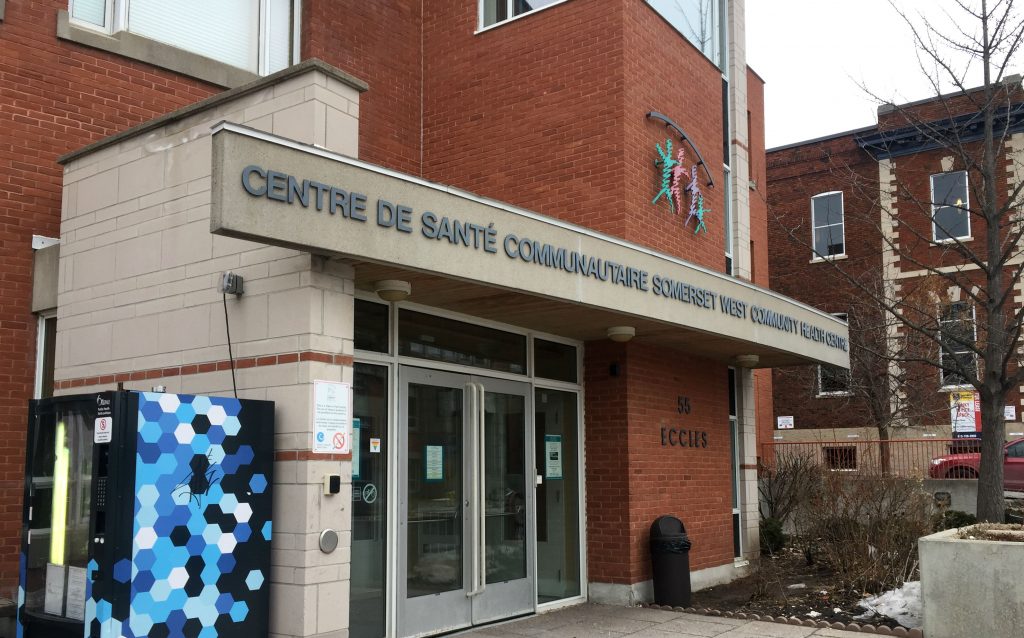Federal budget earmarks funds to combat opioids crisis
By Allison Gram
Those who run a Centretown clinic that helps patients with drug addictions are optimistic about the 2018 federal budget’s pledges for funding to combat the opioid crisis, although the centre doesn’t yet know how much money it will get, or if the money will be enough to end the crisis.
“The right supports and processes are in place,” said Naini Cloutier, the executive director of Somerset West Community Health Centre in Chinatown. “We’re certainly moving in the right direction.”
The Feb. 27 budget announcement highlighted the opioid crisis as the primary public health concern in Canada. The federal government pledged $230 million over five years to improve evidence-based treatment services, education, access to public health data and analysis, as well as better equipping border agents to intercept fentanyl at ports of entry.
Substance abuse isn’t new. But since British Columbia declared a public health emergency in April 2016 — after 982 opioid-related deaths in the province that year — this historically stigmatized and complex public health issue has become a national concern.
In Ottawa, there were on average 34 visits per month to emergency for opioid-related overdoses in 2017, and in January 2018 alone there were 121 emergency room visits, according to Ottawa Public Health.
In response, Ottawa Public Health was given permission to open the city’s first supervised injection site. The site initially opened in the Byward Market but will be located permanently at the Sandy Hill Community Health Centre at Rideau and Nelson streets.
Somerset West Community Health Centre received permission in December from Health Canada to open a supervised injection site at its Eccles Street location. Funding was later received for building renovations to accommodate the service.
Douglas Angus, professor emeritus at the University of Ottawa Telfer School of Management and an expert in health economics and policy, said the federal government is a secondary player the development of healthcare initiatives, and that it will be up to Canadian provinces to allocate the funds.
Angus said that the City of Ottawa should be commended for the effort it is already making to address the opioid crisis in Ottawa.
Sean LeBlanc, chairman of the Ottawa-based Drug Users Advocacy League — which hasn’t received any federal funding, he said — warned the measures proposed in the federal budget will not be enough to make a difference.
DUAL is a non-profit association run by volunteers who have lived through drug addiction, for those who are currently experiencing and fighting it.
LeBlanc said that drug abuse will continue to be a problem unless people with lived experience are integrated into the discussion and design of harm reduction programs and services.
“We’re a group of individuals who want to make changes, and we have to basically create situations and services because those who are tasked with the responsibility, the funding, and the ethos to create these services, simply aren’t doing it,” LeBlanc said.
He said he would also like to see people get paid for the work they are currently doing for free.

